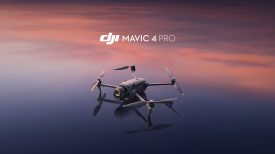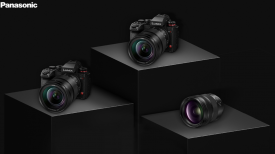
Z Cam has released a new EVF that is very competitively priced at $799 US. EVF’s are generally expensive making the Z Cam model a real potential bargain.
Main Features

- Resolution: 1440×1440
- Wireless
- HDR
- Built-in LUTs
- Built-in exposure tools
- Adjustable diopter
- HDMI / SDI input
- Diopter range of -8 too +4
The EVF is fairly compact at 174.5 x 76.3 x 73.3mm. The diopter adds some length to it. It’s powered externally with a Lemo connector on the back. No onboard battery is available like the Zacuto Gratical HD has. This might be an issue if you are not using a larger battery with a D-tap output on it.

The shortcut and menu buttons are on the side. They look to have raised lettering on them to make it easy to find the button when operating. On the back is a full-size HDMI and SDI inputs as well as USB for loading Luts and firmware updates. It’s good to see that Z Cam included an on/off switch as other EVF’s don’t have one and require the power cable to be disconnected to shut it off. This is not good as if you forget to unplug your camera battery will likely be dead when you resume shooting. It’s the little things that make our lives easier.

Z Cam EVF Specifications
| LCD Resolution | 1440 x 1440 |
| Size | 2.89″ |
| FOV | 49.3º |
| Diopter range | -8 to +4 |
| HDMI | Input Video resolution up to UHD 30fps |
| SDI | Input Video resolution up to 1080p 60fps |
| USB (Type A) | Load user defined LUTs |
| Mounting Option | Metric Rosette with 1/4″-20 screw thread |
| Input colour depth | 10-bit |
| Exposure tools | Zebra, False color, Waveform, Histogram, Vectorscope, Frame line, Center mark, Safe area. |
| Other tools | Focus peaking, magnifier |
| Built-in LUTs | Selectable LUTs & user-defined LUTs |
| Antenna | Dual antenna system |
| WiFi band | 5GHz |
| HDR | Supported |
| Power Input | 2-pin LEMO |
| Power Consumption | 5.5W (maximum) |
| LxWxH | 174.5 x 76.3 x 73.3mm (approximately) |
| Net weight | 612.6 gram (approximately) |
WiFi

A fresh idea on the EVF is the built-in WiFi to monitor the image from the camera with the Z Cam app. I like using my iPhone to control and make changes to E2 settings. Especially the autofocus one-shot feature by tapping the screen on what you want to focus on.
The WiFi connection will be able to stream 10bit HDR signals to the App, Monitor, PC, or Mac. It can do live streaming to a server as well. Z Cam also plans to add receiving streams to the EVF in the future.
I’m not sure if the latency will be high and a bit distracting to use, however, the ability to give others a live view from the EVF is pretty darn cool.

The new Z Cam EVF sits at a very competitive price point especially since it looks like it’s geared towards professionals with the SDI and powering configuration. Below is a comparison of other popular EVF options on the market.
| EVF | Resolution | Screen | Weight | Price |
| Z Cam EVF | 1440 x 1440 | LCD | 612 g | $799 |
| Zacuto Gratical HD | 1280 x 1024 | OLED | 567 g | $1,999 |
| Zacuto Gratical Eye | 1280 x 1024 | OLED | 397 g | $1,450 |
| Cineroid EVF4RVW | 960 x 640 | Retina LCD | 400 g | $845 |
| Zacuto Kameleon | 1920 x 1080 | OLED | 567 g | $1,950 |
| Portkeys OEYE | 1920 x 1080 | OLED | 400 g | $1,199 |
| BMD URSA EVF | 1920 x 1080 | OLED | 1066 g | $1,495 |
This is a pre-release and is available for preorder from CVP and will soon be available from US retailers in September. Again, with the entry price of $799 it just might be a go-to EVF for the budget-minded filmmaker.
Like what we do and want to support Newsshooter? Consider becoming a Patreon supporter and help us to continue being the best source of news and reviews for professional tools for the independent filmmaker.





